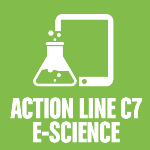Whole of Government Approach to Scale Digital Transformation for SDGs
International Telecommunication Union and Digital Impact Alliance

Session 196
Widespread adoption by governments and partners of whole-of-government approach to ICT investment through building and scaling-up re-usable ICT capabilities and building blocks to achieve SDGs.
The Sustainable Development Goals (SDGs) adopted by 193 countries were set to “transform our world” by 2030. They recognize that ending poverty must go together with strategies that build economic growth and address a range of social needs including education, health, social protection, and job opportunities, while tackling climate change and environmental protection. A countries’ ability to achieve these goals is dependent on the innovative use of technology, in particular information and communication technologies (ICTs), as a crucial means of implementation and catalyst to advance and make existing and new programing more effective and scalable to better serve their populations. Never before have we been in position to accelerate progress with the rapid advancements in technology we are seeing today. There is growing evidence to suggest that by taking a whole-of-government approach to investing in digital infrastructure, countries can deliver digital services at scale with a greater return on investment.
A whole-of-government approach refers to a cross-sector and cross-organizational consideration of individuals’ needs to delivering services in a more integrated and coordinated manner.
This session is focused on how a whole-of-government approach to digital investments scales e-services and promotes economies of scale. A whole-of-government approach refers to a cross-sector and cross-organizational consideration of individuals’ needs to delivering services in a more integrated and coordinated manner.
The session will introduce a new “SDG Digital Investment Framework” that has been developed by the International Telecommunications Union (ITU) and the Digital Impact Alliance (DIAL) and is ready for country-level pilots. Drawing on evidence based studies in agriculture, education and the health sector, the framework identifies a set of common, reusable ICT building blocks that can assist countries deliver on SDGs and achieve their national development priorities.
Panelists will also draw on the experiences of countries, donors and international development partners to provide actionable recommendations to move forward.
Moderator
Ms. Kate Wilson, Chief Executive Officer, Digital Impact Alliance
Speakers/Panellists
- Opening statement - Ms. Doreen Bogdan-Martin, Director, Telecommunication Development Bureau (BDT),
International Telecommunication Union
Panellists:
- H.E. Mr. Zunaid Ahmed Palak, State Minister for Information and Communication Technology, Bangladesh
- H.E Ms. Aurélie Adm Soule Zoumarou, Ministre de l'Economie numérique et de la Communication, Benin
- H.E Ms. Libom Li Likeng Mendomo Minete, Minister for Posts and Telecommunications, Cameron
- Mr. Jüri Seilenthal, Director General of the Foreign Economic Department, Ministry of Foreign Affairs, Estonia
- Mr. Hisazumi Shirae, Director for Technology Cooperation, Japan
Session's link to WSIS Action Lines
-
 C1. The role of public governance authorities and all stakeholders in the promotion of ICTs for development
C1. The role of public governance authorities and all stakeholders in the promotion of ICTs for development
-
 C3. Access to information and knowledge
C3. Access to information and knowledge
-
 C5. Building confidence and security in the use of ICTs
C5. Building confidence and security in the use of ICTs
-
 C6. Enabling environment
C6. Enabling environment
-
 C7. ICT Applications: E-government
C7. ICT Applications: E-government
-
 C7. ICT Applications: E-business
C7. ICT Applications: E-business
-
 C7. ICT Applications: E-learning
C7. ICT Applications: E-learning
-
 C7. ICT Applications: E-health
C7. ICT Applications: E-health
-
 C7. ICT Applications: E-employment
C7. ICT Applications: E-employment
-
 C7. ICT Applications: E-environment
C7. ICT Applications: E-environment
-
 C7. ICT Applications: E-agriculture
C7. ICT Applications: E-agriculture
-
 C7. ICT Applications: E-science
C7. ICT Applications: E-science
-
 C11. International and regional cooperation
C11. International and regional cooperation
Session's link to Sustainable Development Process
-
 Goal 1: End poverty in all its forms everywhere
Goal 1: End poverty in all its forms everywhere
-
 Goal 2: End hunger, achieve food security and improved nutrition and promote sustainable agriculture
Goal 2: End hunger, achieve food security and improved nutrition and promote sustainable agriculture
-
 Goal 3: Ensure healthy lives and promote well-being for all
Goal 3: Ensure healthy lives and promote well-being for all
-
 Goal 4: Ensure inclusive and equitable quality education and promote lifelong learning opportunities for all
Goal 4: Ensure inclusive and equitable quality education and promote lifelong learning opportunities for all
-
 Goal 5: Achieve gender equality and empower all women and girls
Goal 5: Achieve gender equality and empower all women and girls
-
 Goal 6: Ensure access to water and sanitation for all
Goal 6: Ensure access to water and sanitation for all
-
 Goal 7: Ensure access to affordable, reliable, sustainable and modern energy for all
Goal 7: Ensure access to affordable, reliable, sustainable and modern energy for all
-
 Goal 8: Promote inclusive and sustainable economic growth, employment and decent work for all
Goal 8: Promote inclusive and sustainable economic growth, employment and decent work for all
-
 Goal 9: Build resilient infrastructure, promote sustainable industrialization and foster innovation
Goal 9: Build resilient infrastructure, promote sustainable industrialization and foster innovation
-
 Goal 10: Reduce inequality within and among countries
Goal 10: Reduce inequality within and among countries
-
 Goal 11: Make cities inclusive, safe, resilient and sustainable
Goal 11: Make cities inclusive, safe, resilient and sustainable
-
 Goal 13: Take urgent action to combat climate change and its impacts
Goal 13: Take urgent action to combat climate change and its impacts
-
 Goal 14: Conserve and sustainably use the oceans, seas and marine resources
Goal 14: Conserve and sustainably use the oceans, seas and marine resources
-
 Goal 15: Sustainably manage forests, combat desertification, halt and reverse land degradation, halt biodiversity loss
Goal 15: Sustainably manage forests, combat desertification, halt and reverse land degradation, halt biodiversity loss
-
 Goal 16: Promote just, peaceful and inclusive societies
Goal 16: Promote just, peaceful and inclusive societies
-
 Goal 17: Revitalize the global partnership for sustainable development
Goal 17: Revitalize the global partnership for sustainable development